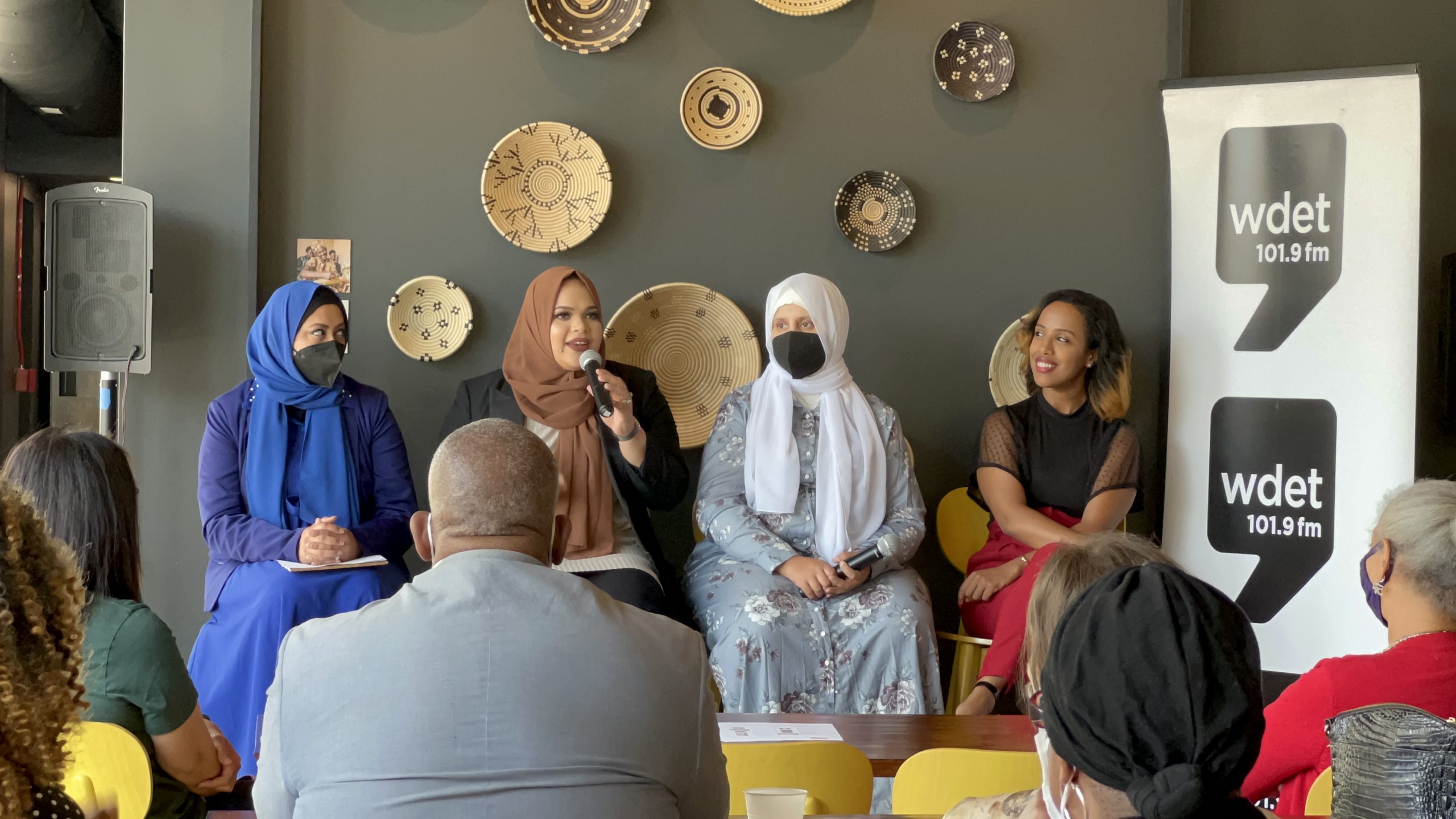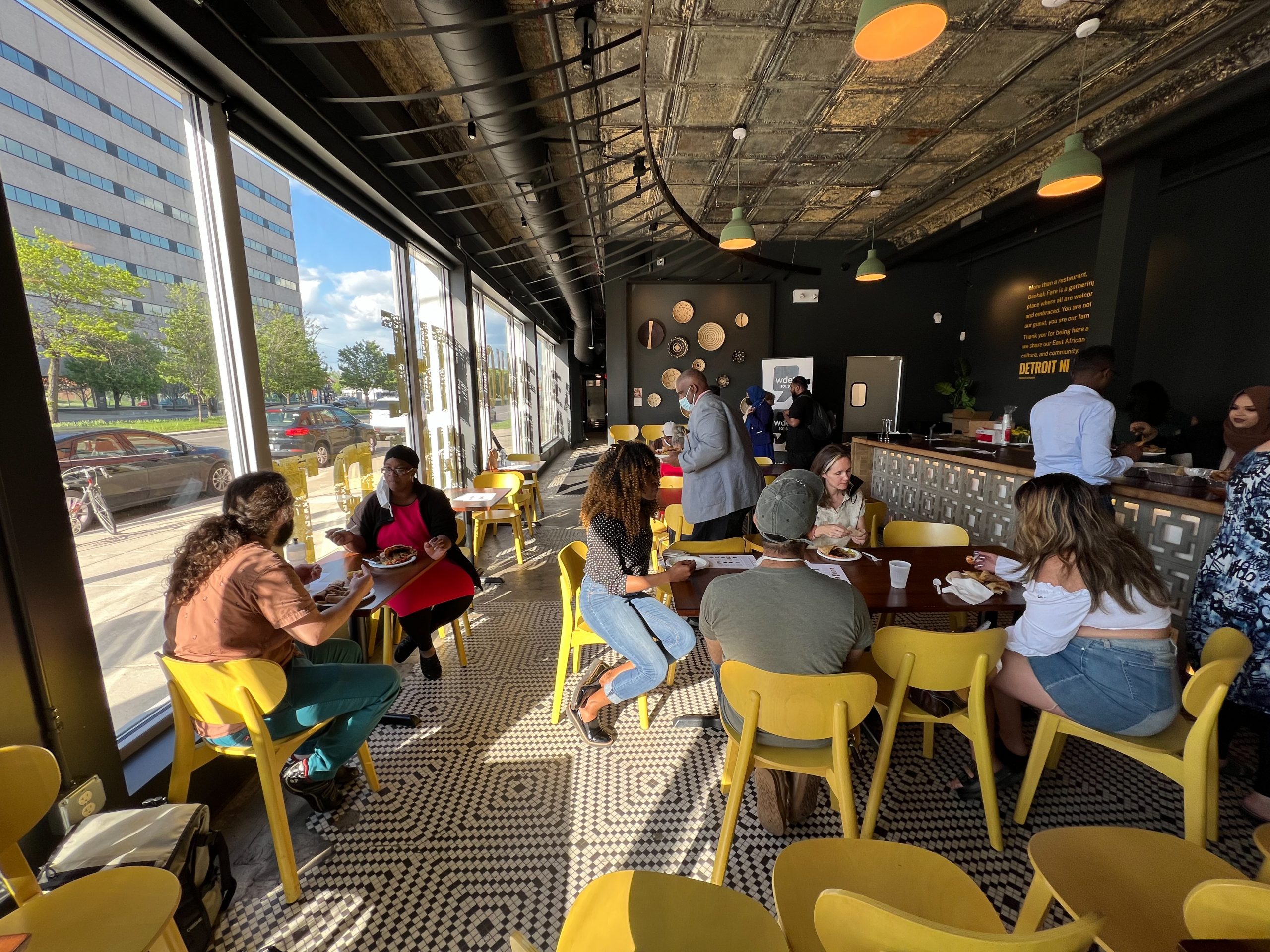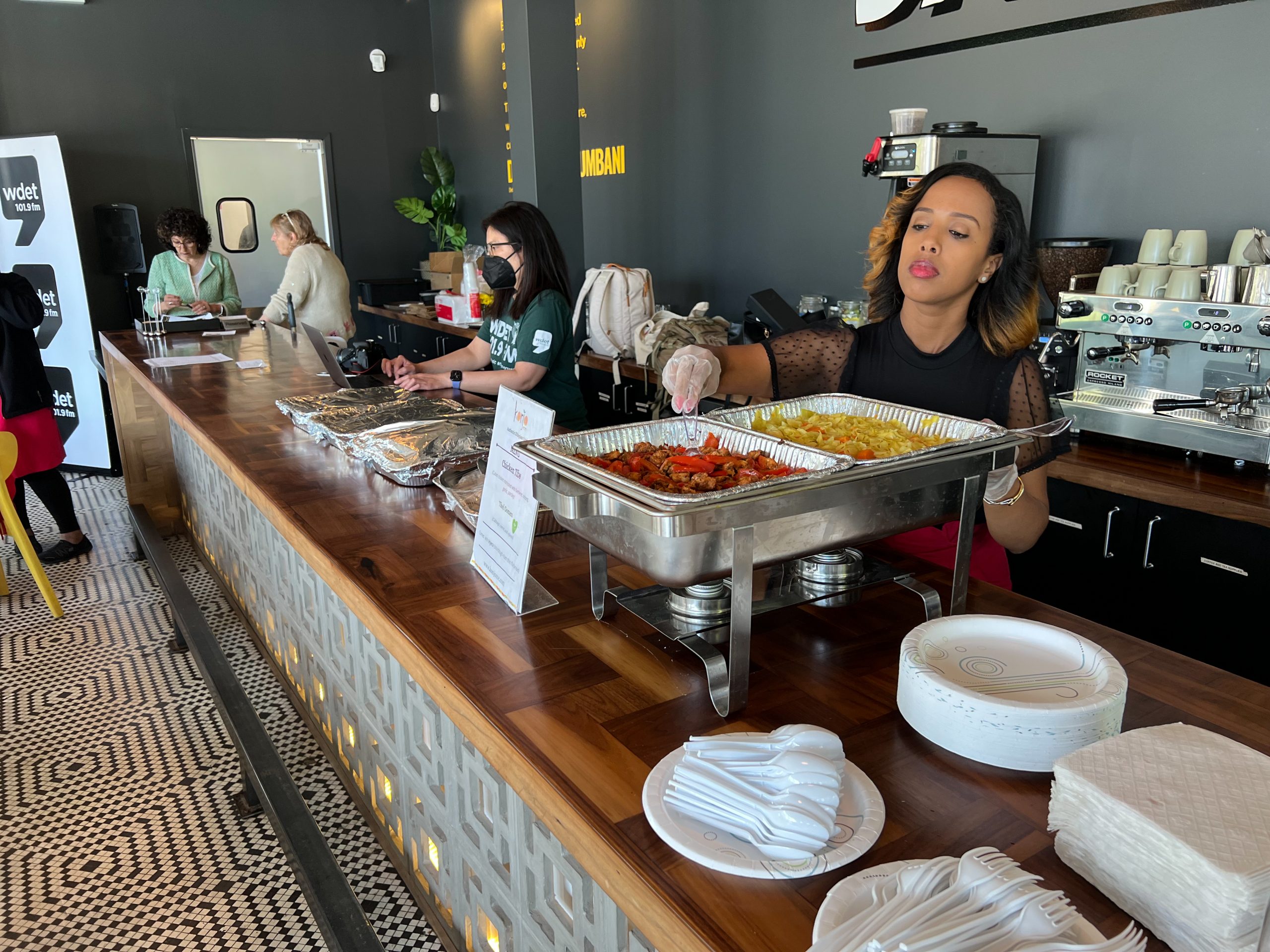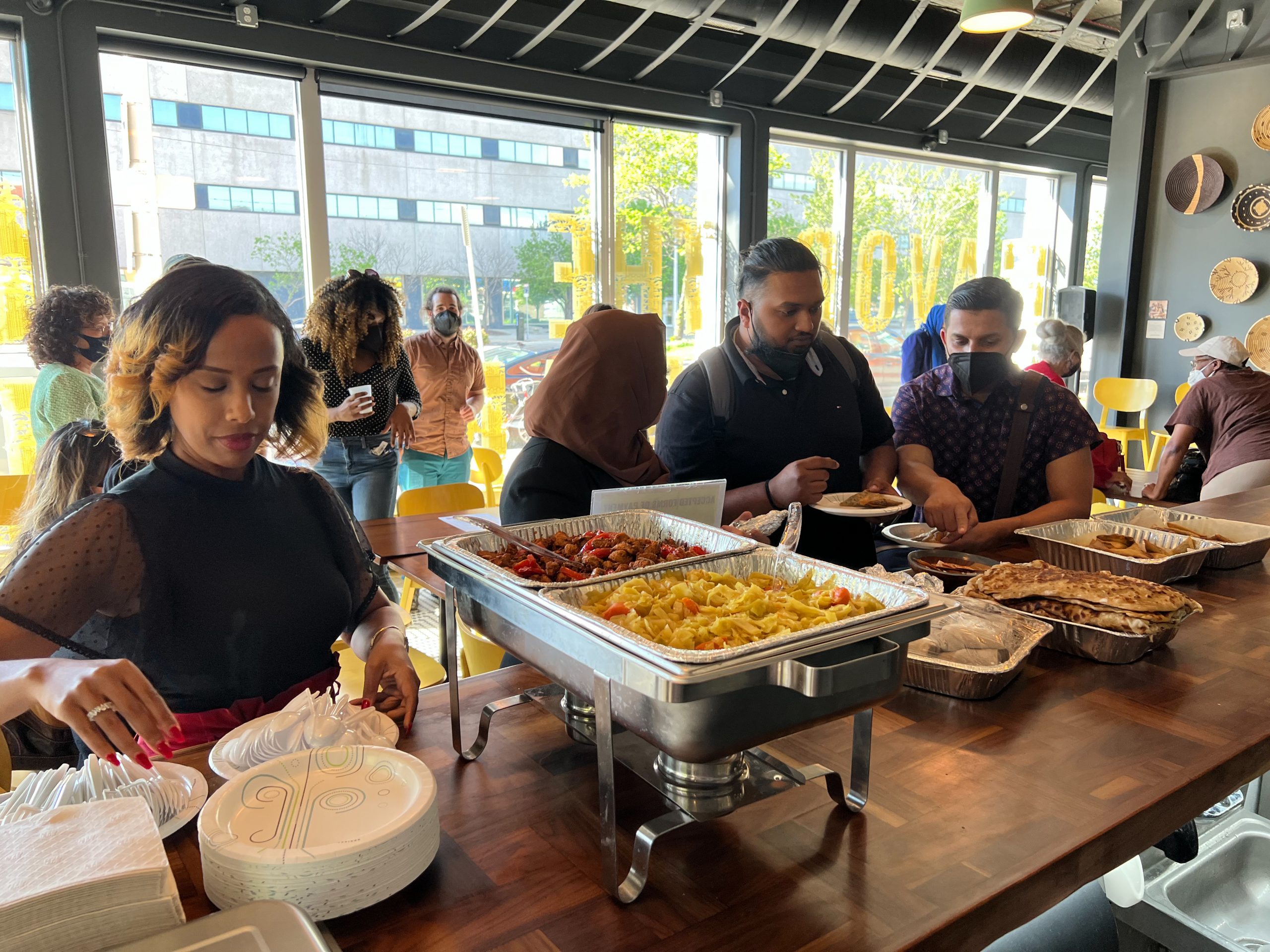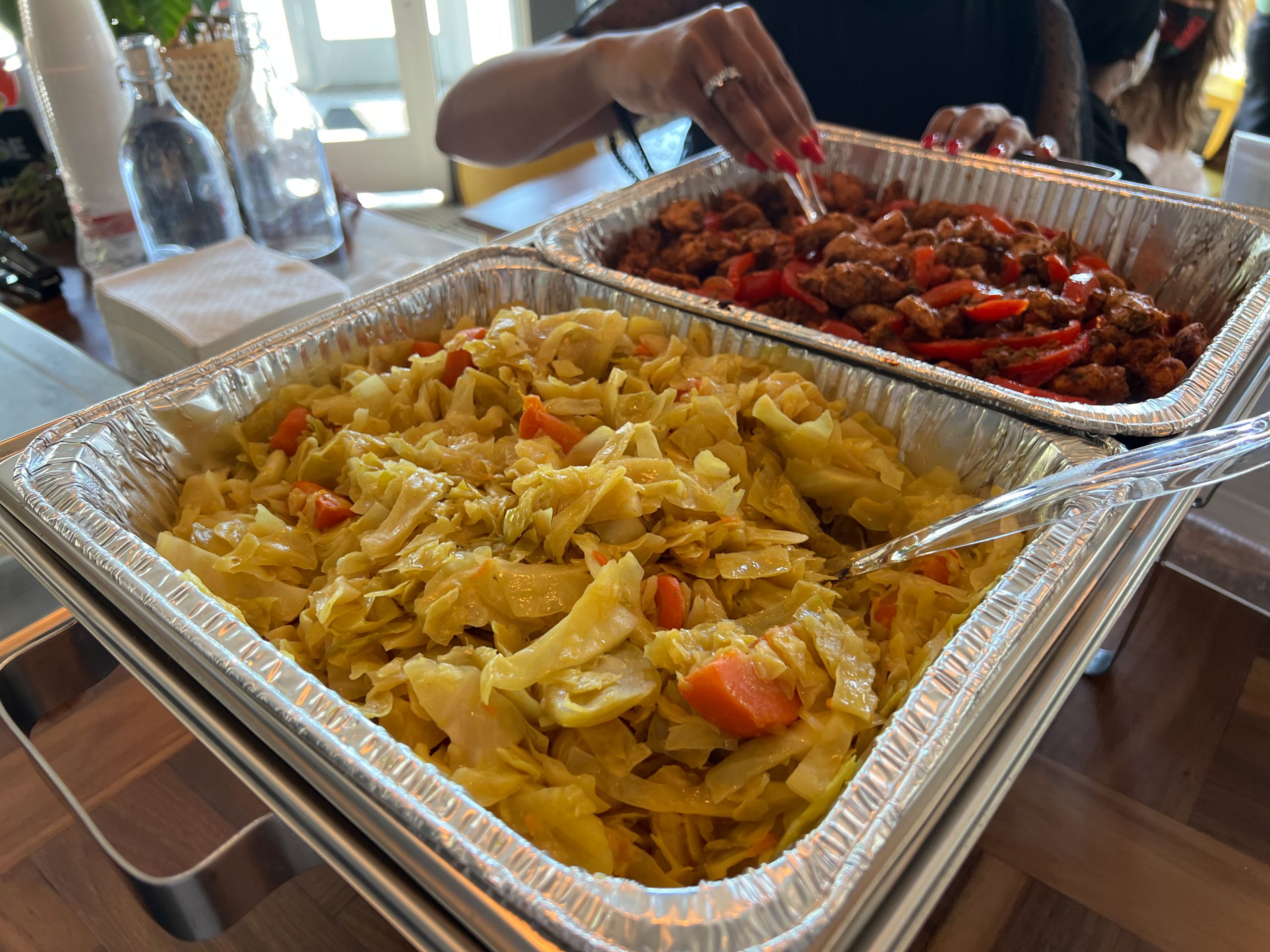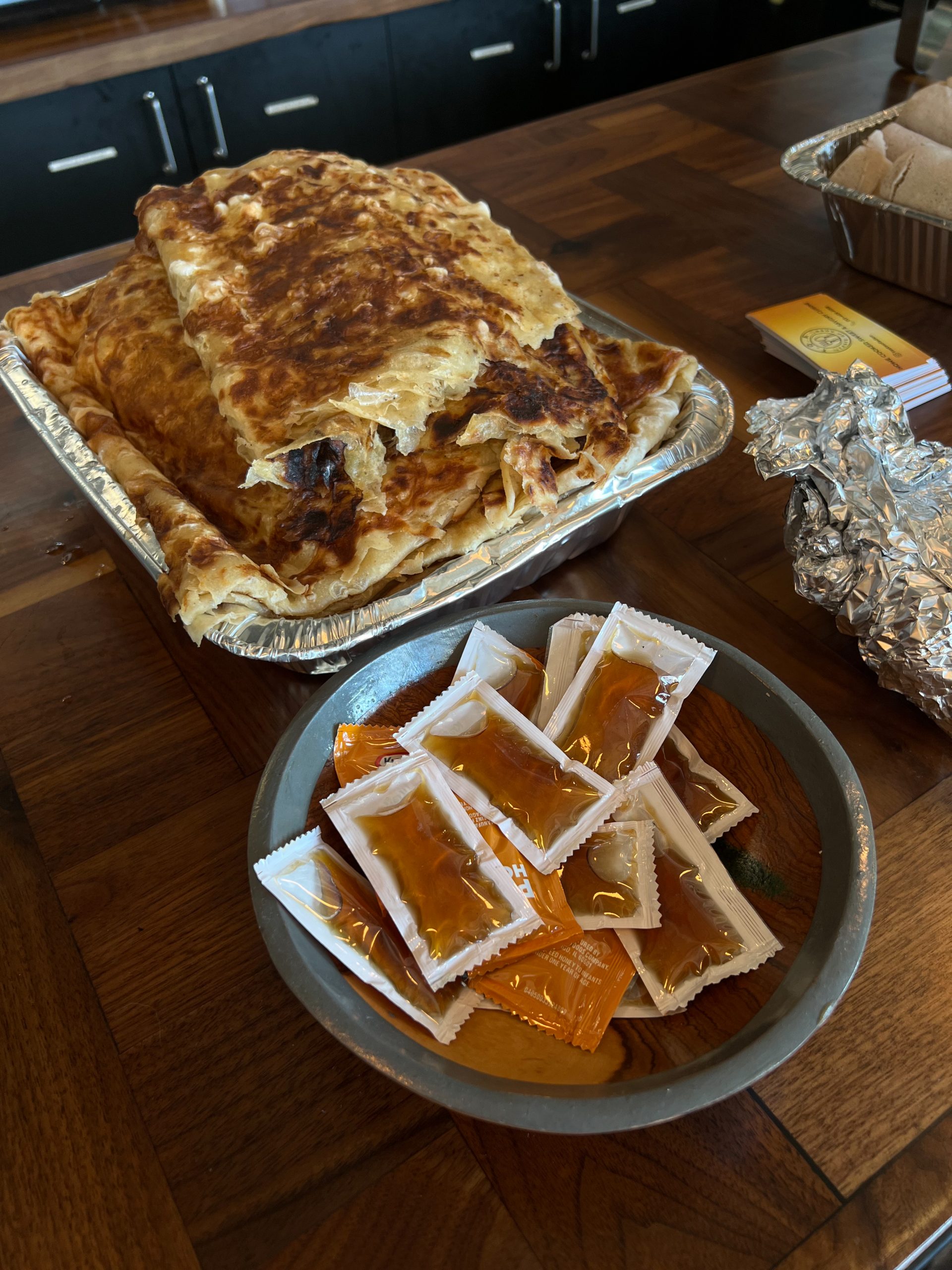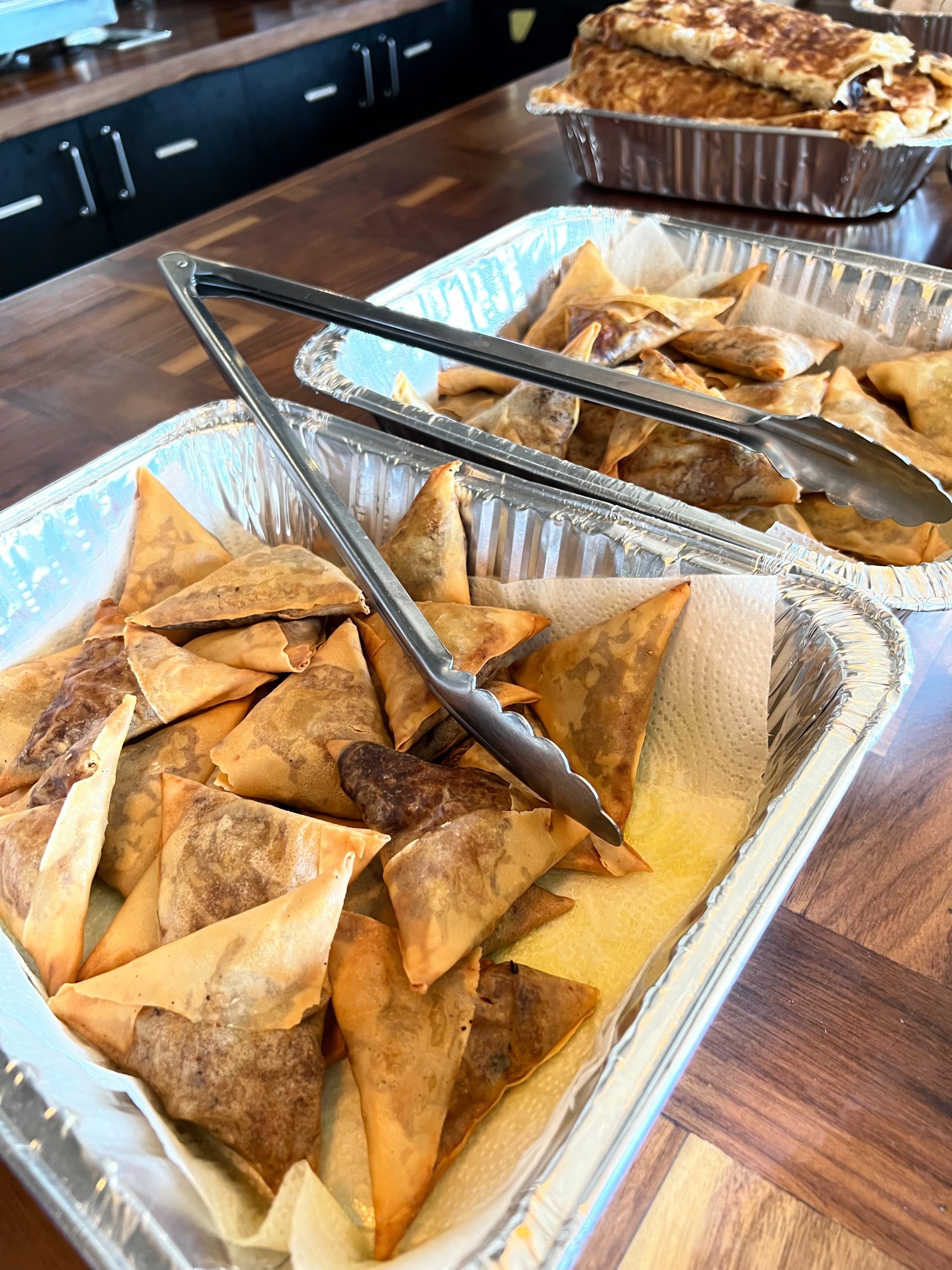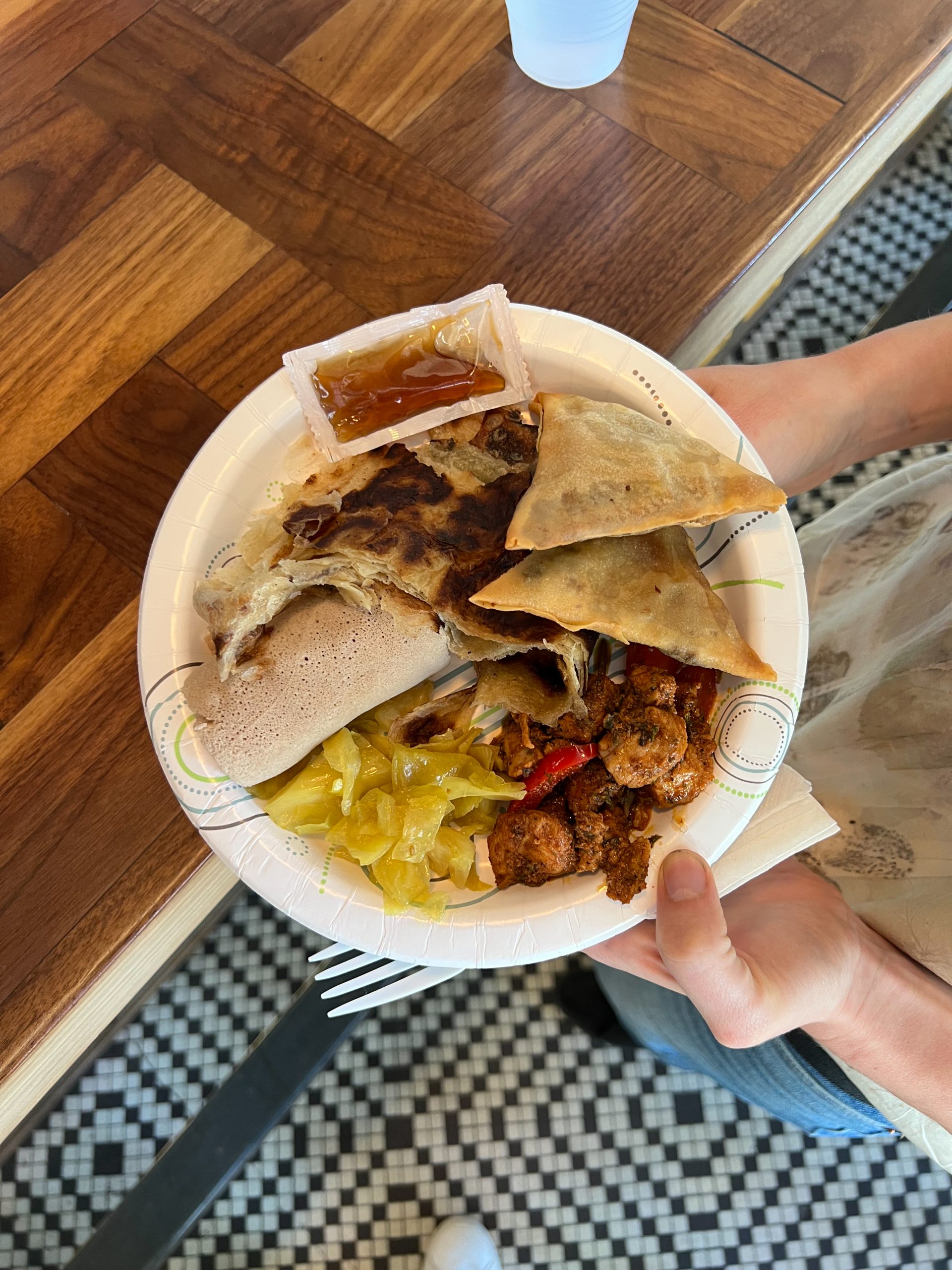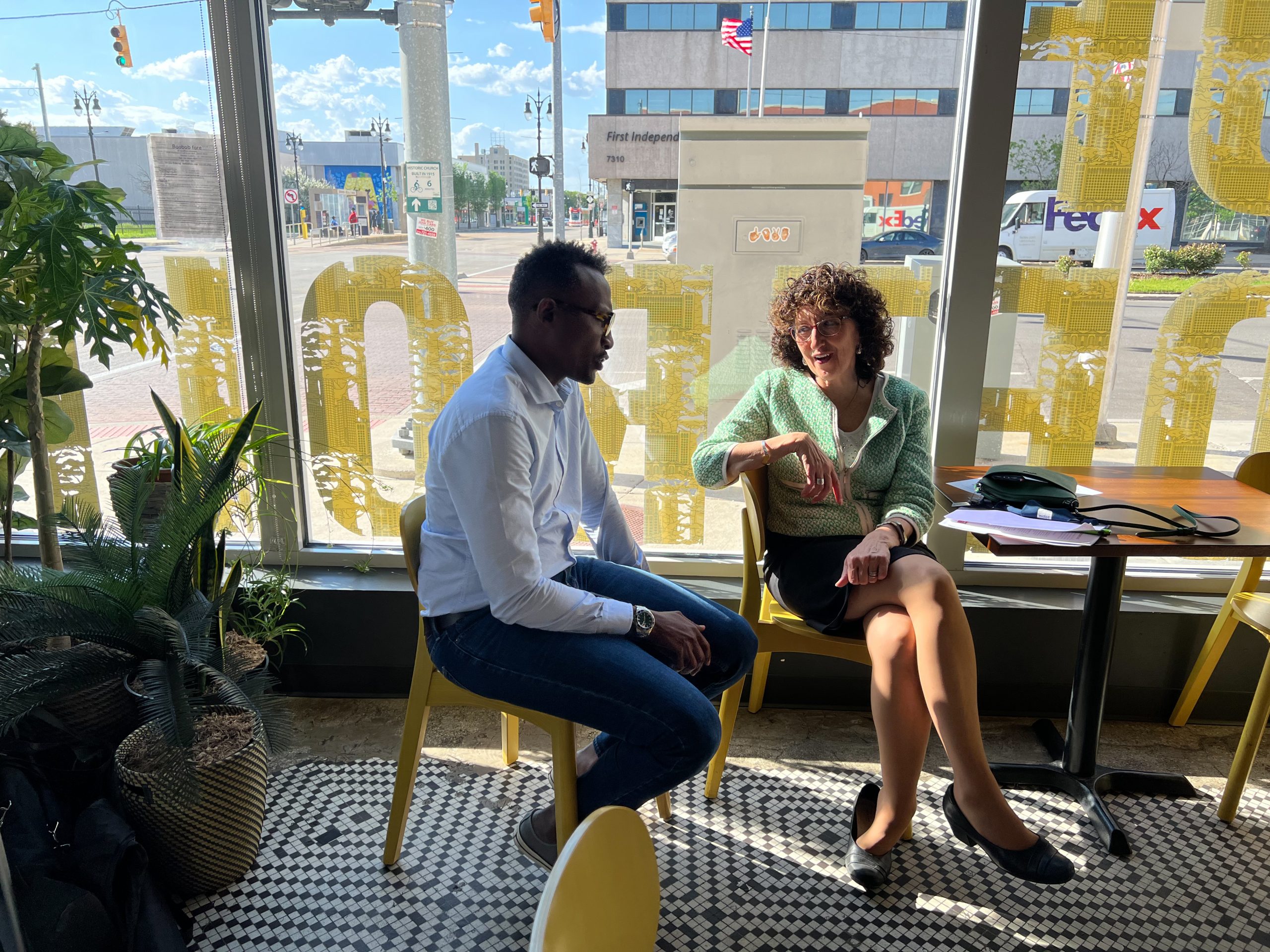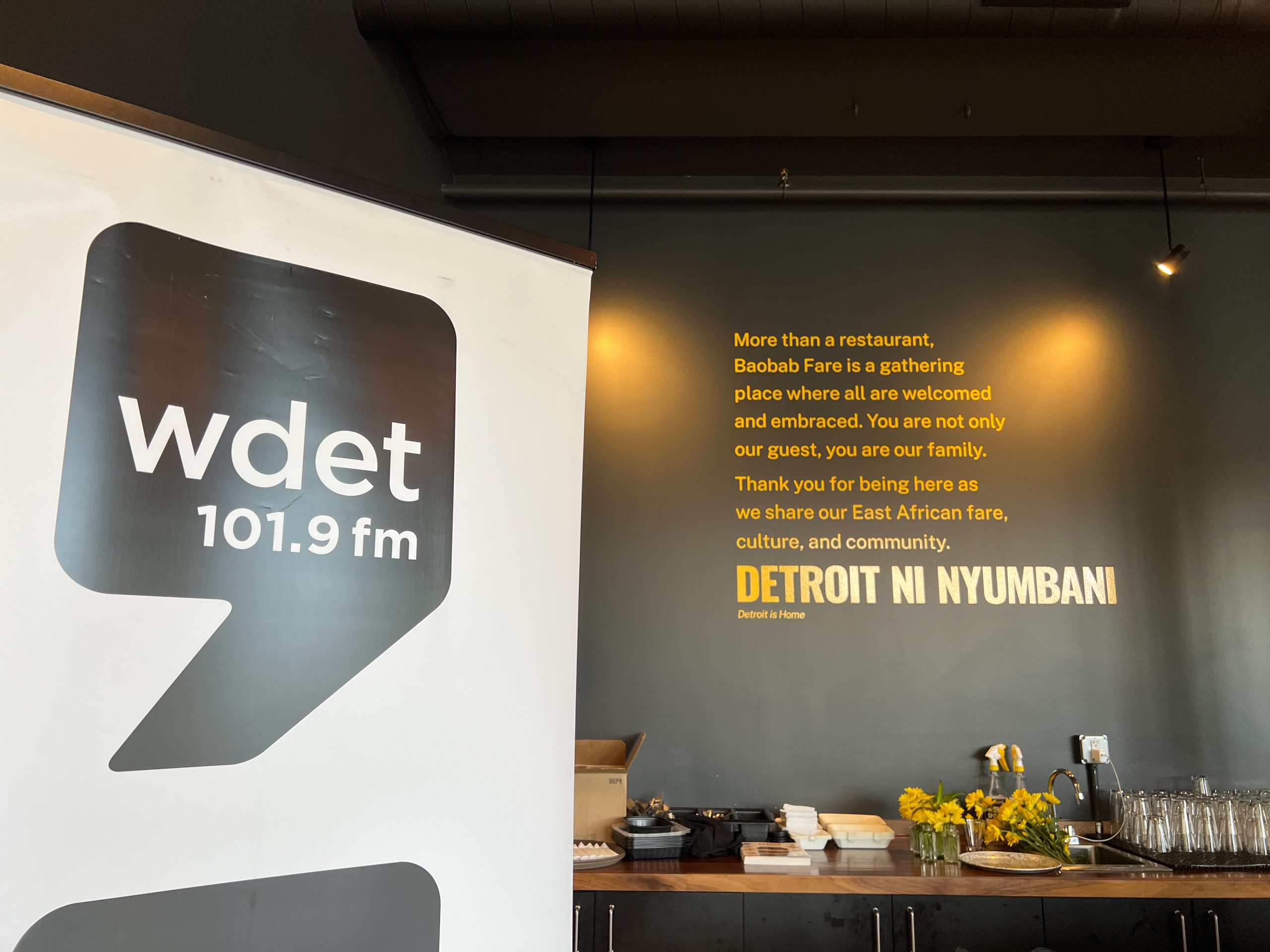Minority women food entrepreneurs share lessons learned from running a business during COVID-19
The food industry was hit hard by the pandemic, but several Detroit food businesses found a way to hold on to hope and persevere. WDET gathered some of the women featured in the Communities of Hope series to find out how they are responding.
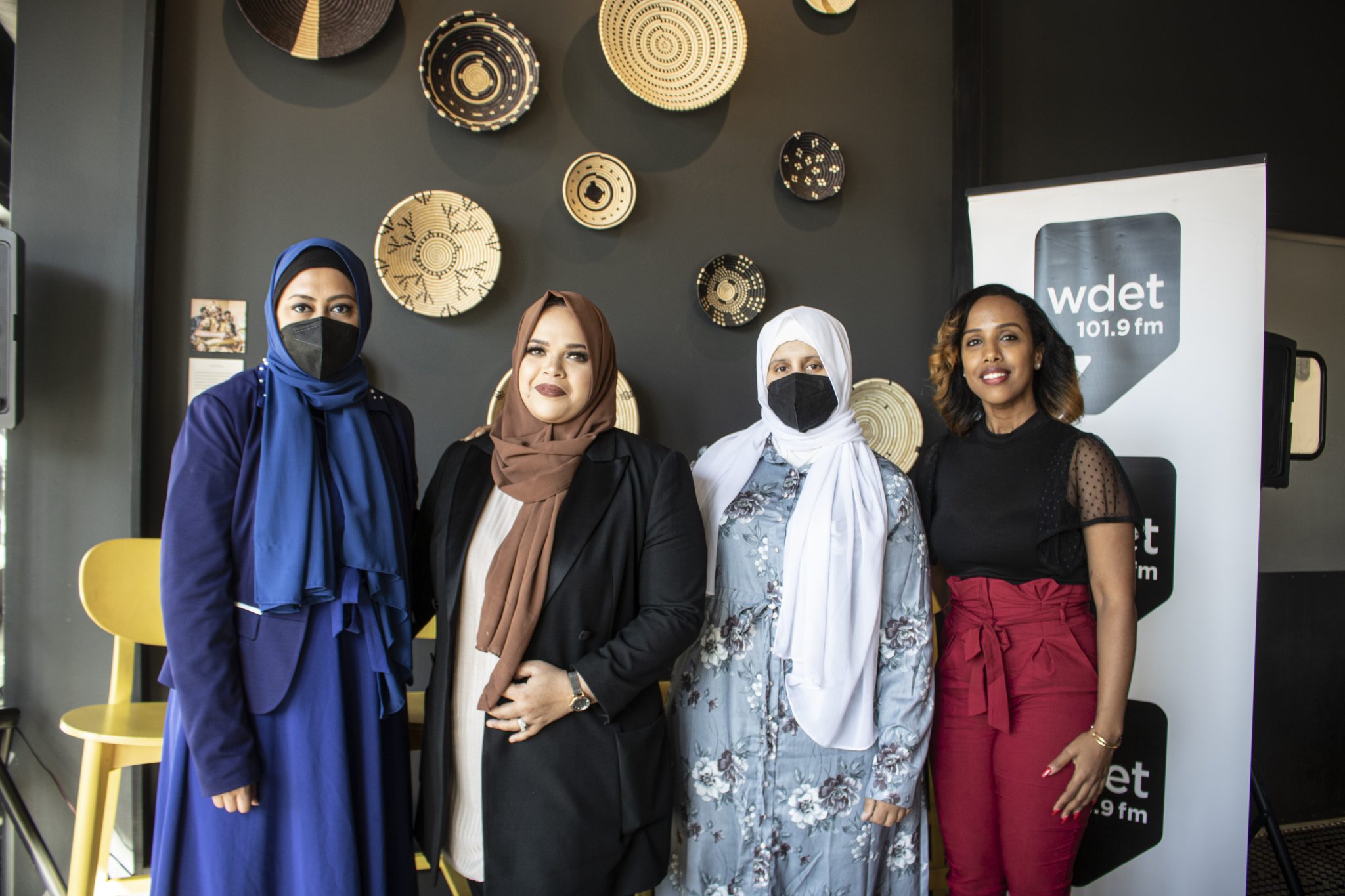
The food industry was hit hard by the pandemic, but several Detroit food businesses found a way to hold on to hope and persevere. WDET gathered some of the women featured in the Communities of Hope series to find out how they are responding.
Restaurants were some of the first businesses affected by the pandemic — and the fallout continues today as many struggle to stay afloat amid soaring inflation, staffing woes and supply chain issues. Indoor dining virtually stopped overnight to curb the virus. Food businesses had to adapt and pivot, to varying degrees of success. And uncertainty over the future as the pandemic continues is clouding the future for many.
But for some Detroit-based minority women owned food businesses, they faced even more unique challenges such as overcoming stereotypes, pushback from their own communities and juggling the responsibilities of caring for their families while running a business. Nevertheless, they persisted and found a way to survive and hold on to hope.

As part of WDET’s Communities of Hope series, Sadya Chowdhury, owner of Zafreen’s Kitchen; Cathy Manna, owner of Taste of Aden; and Helina Melaku, owner of Konjo Me sat down with reporter and producer Nargis Rahman during a roundtable Monday at Baobab Fare to share how they found ways to build and preserve community and persevere during the pandemic.
For Chowdhury, she knew she always wanted to do something with the food. While she’s worked in the food industry since she’s been in the U.S. for the past 15 years, she didn’t have a business of her own. After losing her job as a server, she says it was time for her to pursue that longtime dream.
“Let me start something that I love doing,” Chowdhury says. “And once I started, I got a lot of support from my family, from friends and definitely from our guests.”
Chowdhury talks about how Zafreen’s Kitchen began
Melaku says she wanted to start Konjo Me because she wanted to bridge the gap between her Ethiopian culture and American culture and to showcase the food of her home country to a wider audience. Konjo Me allowed her to educate others about Ethiopian food traditions, such as eating with your hands.
“There is a big disconnect with my culture, who I am and where I live. There was really no connection as far as the food or the people. There wasn’t a lot of people around me who was from where I was from, and food was the major thing [to connect with others] because that’s what I grew up eating.”
She says one of the biggest challenges she faced was dealing with supply shortage. “Going to the store was hell because there was a lot of shortages of food and containers,” she says. “A lot of times I couldn’t get or I couldn’t buy the ingredients that was needed properly. And then another [challenge] was delivering the food, I had to do it myself. So I wore many hats, I was the chef, I took the orders, I did the delivery, I did the grocery store runs.”
Manna on addressing and overcoming stereotypes
Manna says the pandemic taught her to be tough because one of the big challenges she struggled with was overcoming stereotypes such as being told Yemeni women cannot be businesswomen. That just motivated her further to showcase the traditions and foods of Yemeni culture as one.
Melaku says running a business during the pandemic taught her to be more resilient and patient but more importantly being more intentional about making connections with people, especially her customers.
“Just building a relationship with them that’s not just about transaction. For me, it’s about wanting to hear other people’s stories, and where they come from or what they do,” says Melaku, who has an upcoming pop-up at Baobab Fare. She’s had events at the East African restaurant before and owners like Mamba Hamissi helped her get started and she wants to do the same for others.
“When I do pop-ups, I bring in other minority-owned Black businesses, or women in particular, to do dessert for me, and I do the cooking. So I love supporting women in business in general.”
For the three women, it’s about building a legacy. Before Zafreen’s Kitchen, Chowdhury says she thought she was just going to be a housewife and now she’s thinking bigger after reflecting on what she’s accomplished.
“I want to make people happy and it makes me happy when people are happy with my food. … One day I want to have my own kitchen that I see my name on it. I would love to have a kitchen I can call it my own and say I am the boss. I want to be the boss lady in that kitchen.”
As a divorced single mother, Manna says it’s never too late to pursue your dreams no matter how old you are.
“In the past, it was the norm [being told] that you’re not able to do this, we can’t do that because of our culture and who we are,” Manna says. “And I want to prove to everyone that it’s not too late.”
She says while she wants people to know that her business is the one that makes the good Yemeni food with a twist, she wants “to motivate everyone out there, especially the multicultural [communities] African Americans, the Arab Americans, Asians .. it’s not too late for them to do something for their lives, and then for the future of their children.”
As an immigrant from Ethiopia, Melaku says she and others come to the U.S. seeking better opportunities, and it was important for her to build the life that she saw for herself despite the challenges of the pandemic.
“I was working a nine to five, that was never than life that I saw for myself,” Melaku says. “I don’t want to work for other people the rest of my life, I wanted to build something that I can leave for my children and leave a legacy behind and something that can continue to grow.”
To read more about Chowdhury, Manna and stories and other stories from the Communities of Hope series, click here.
Check out a photo gallery from the event at Baobab Fare.
Trusted, accurate, up-to-date.
WDET strives to make our journalism accessible to everyone. As a public media institution, we maintain our journalistic integrity through independent support from readers like you. If you value WDET as your source of news, music and conversation, please make a gift today.

